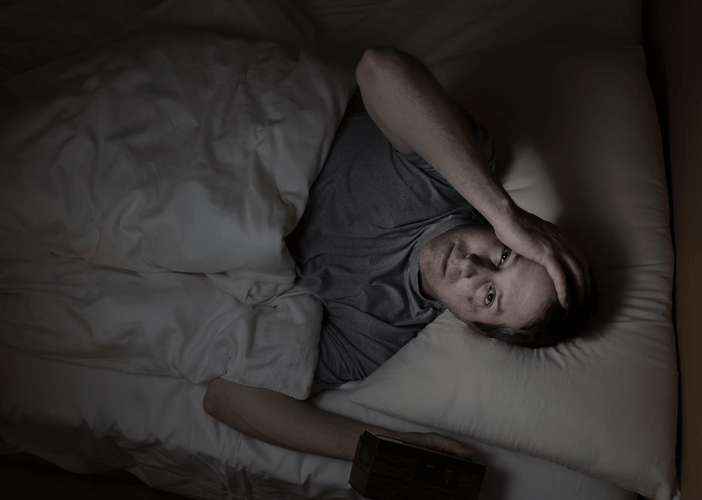How Long Does It Take To Detox From Alcohol? Timeline And More
Content
If you begin to experience serious symptoms of alcohol withdrawal, drink enough to make the symptoms subside without becoming intoxicated. The biggest danger of detoxing from alcohol at home is withdrawal and withdrawal symptoms. While some people can recover from withdrawal symptoms within a week, Alcohol detoxification others with severe dependency may deal with symptoms for much longer. At Vertava Health Mississippi, our alcohol treatment centers in Mississippi provides the full continuum of care to help people with every step of the recovery journey. Getting started off on the right foot by contacting us today.

Alcoholism treatment allows you to detox in a safe environment. It teaches you healthy ways to cope with stress and techniques for overcoming the underlying causes of alcohol addiction. You can overcome your alcohol addiction and achieve sobriety. The key point to remember is that’s never safe to self-detox from alcohol at home. People with the highest risk of complications from alcohol withdrawal are those who drink heavily in excess and those who have attempted to self-detox in the past.
Medically Monitored Alcohol Detox: The Best Way To Safely Detox From Alcohol
Usually, by the third day you won’t really need them there except to check in on you. And by all means, avoid the sugar snacks that you’ll crave once you start detoxing. Before you begin the alcohol detox,shift to a healthy dietrich in lean proteins like chicken, eggs, fish and non-fatty meats. Add in a lot of raw fruits and vegetables, whole grains, potatoes, beans and pasta. Our team will work closely with you to schedule your intake appointment. During this appointment, our recovery team can talk with you and make recommendations to safely detox as well as create a personalized plan for recovery for you. Make the withdrawal process safe for the person and help them live alcohol-free.
Continued support and treatment may be necessary to stop drinking for a long period of time. Most professionals recommend detoxing at a rehabilitation facility, so the person can be monitored by medical professionals. Alcohol detox often brings about symptoms that are not easily understood.

The symptoms of withdrawal can be quite severe and debilitating, making it difficult for a person to care for themselves or understand their condition. Without trained medical staff available to recognize dangers and provide adequate treatment and nourishment, a person is left susceptible to severe withdrawal symptoms and even death. If you’re considering treatment for alcohol addiction, the first step will likely be an alcohol detox.
If they opt for this detox method, make sure to limit a daily liquor intake consistently and not fluctuate back and forth. At home, alcohol detoxification can be carried out under very limited circumstances. Alcohol detox at home is usually safe for the binge-drinker who only parties on the weekend because their bodies have not developed the full-blown addiction. These drinkers may become seriously uncomfortable while attempting self-detox from drinking, but most likely, this discomfort will not move into the life-threatening category. When a drinker stops drinking beer or liquor, the body reacts with several withdrawal symptoms that can last for weeks. Without any medical supervision, the process can become even harder.
Dangers Of Alcohol & Benzodiazepine At
If you do not experience severe withdrawal symptoms, at-home detox may be an option for you. However, for many people, alcohol withdrawal is a medical emergency. If you’re unable to reduce how much you drink, you may have a disease called alcoholism that requires professional addiction treatment. Alcohol rehab helps you taper off alcohol, and it treats other side effects and causes of alcoholism. If you’ve been unable to quit on your own, you should consider attending an alcohol rehab center.

Many people do not feel like eating during the first few days of detox, but you should try to eat something even if you are not hungry. These first symptoms usually persist for three to seven days following your last drink. During this period, it is common for people to have issues sleeping.
Symptoms
When prescribed during alcohol detox, they bind to the same receptors in the brain that alcohol does. This helps the brain cope with the lack of alcohol while reducing problematic detox symptoms like anxiety, insomnia, and hallucinations. Collectively, these alcohol withdrawal symptoms may last from a few days to a few weeks. Although most of the severe withdrawal symptoms may be over, emotional, mental, and psychological symptoms may persist. If these symptoms are acute or chronic in nature, it may be necessary to continue medical treatment and therapy to reach a full and lasting recovery.
- They will work with you to create a recovery plan that helps you detox from alcohol and transition into recovery.
- The Virginia Center for Addiction Medicine is now Master Center!
- A non-judgemental approach and the use of motivational interviewing techniques are essential.
- Help your loved one by contacting a treatment provider today.
Overall, alcohol home detox is neither the most effective nor the safest method of quitting drinking addiction, but in some cases, it is an inexpensive and efficient one. Having someone around to make sure a detoxing individual stable is always a good idea. If one chooses to undergo self-detox from alcohol, they should remind their best friend, family, or even a doctor to check on them regularly, just in case. This is essential if a person wants to practice safe alcohol detox at home. Detox programs typically use a number of prescription medications to decrease the severity and lessen the damage that alcohol withdrawal causes. When a person experiences severe withdrawal without medical assistance they run the risk of seizures, hallucinations and heart failure.
Risks Of Dealing With Alcohol Withdrawal At Home
Seizures, hallucinations, and delirium tremens occur in the most severe cases. In order to understand how to safely detox from alcohol, one must understand the different stages of alcohol withdrawal. It is possible to detox at home through an outpatient alcohol treatment program.
This is what causes the calming effect that makes these substances attractive. Over time, continued and heavy use of these substances can cause deep chemical changes in the brain that make an individual unable to function properly without the substance. This results in dependence on the substance, and it is an indication of addiction. SAMHSA’s mission is to reduce the impact of substance abuse and mental illness on America’s communities. Find treatment facilities and programs in the United States or U.S. Many people attempt to self-detox at some point, and it’s often a string of failed attempts of self-detoxing that lead an individual to enter rehab in the first place. That’s not to say, however, that people haven’t successfully self-detoxed from alcohol on their own.
Look To The Power Of Natural Remedies To Control Your Alcohol Shakes
Unfortunately, these symptoms are painful, difficult to manage, and have the potential to last for weeks. Also, without any medication, the symptoms of alcohol withdrawal may be difficult to bear. Stopping alcohol abuse suddenly can lead to hallucinations, seizures, and even heart failure that may result in death. While these risks are very rare, it is vital to understand every possibility before attempting to deal with alcohol withdrawal at home.

It also explains why it’s important to find effective treatments. Whatever treatments you choose, make sure to discuss the benefits and risks with your healthcare team. alcohol detox at home safely Help your loved one by contacting a treatment provider today. Similar to the first full day of detox, the most painful symptoms will continue into the second day.
Encourages teens to seek emotional support from other adults, school counselors, and youth support groups such as Alateen, and provides a resource list. Alcohol withdrawal causes a variety of different symptoms including fatigue, anxiety, depression, loss of appetite, nausea, and vomiting. These symptoms are most severe between 24 and 72 hours after the last drink and may limit your ability to eat. Detoxing from alcohol is most effective under the guidance of a professional at a detox rehab center. For those seeking addiction treatment for themselves or a loved one, the MentalHelp.net helpline is a private and convenient solution. An at-home detox may be right for some people, but you’ll need to work with a doctor to be sure you’re doing it safely. That’s a period where you don’t drink so your body can begin recovering.
If a medical provider prescribes medications to ease withdrawal symptoms, a patient may benefit from taking vitamin supplements as well. Before you embark on this journey, make sure you consult with a doctor. Alcohol withdrawal can be very difficult and painful, both emotionally and physically, and can even be dangerous for your health. When a person is physically dependent on alcohol, ridding the body of it is a serious process and it does not happen overnight. It’s important to have a plan and solicit professional advice for treatment before starting the process. Moderate drinking is officially defined as 1 drink or less per day for women and 2 drinks or less per day for men.
Contact Agape Treatment Center for more information on the safest way to detox and overcome alcohol withdrawal safely. Professional alcohol rehabilitation facilities are the most recommended form of alcohol detox by medical professionals. These facilities employ trained doctors and nurses who are able to monitor a person’s condition as they go through the various stages and symptoms of withdrawal. They can provide the necessary nourishment and treatment to handle these symptoms and meet any complications that may arise during the process. Your primary care provider can advise you on where to seek care for the physical and mental symptoms of alcohol withdrawal.
Pros & Cons Of Detoxing At Home
Your brain eventually stops producing certain chemicals that it receives from alcohol, becoming dependent on the drug. That’s why when you quit drinking, it takes time for your body to adjust. This is what causes withdrawal symptoms such as headache, fever, nausea, irregular heartbeat and hallucinations. The post-acute withdrawal stage occurs months after the initial stage is over, and the body is fully detoxified.


